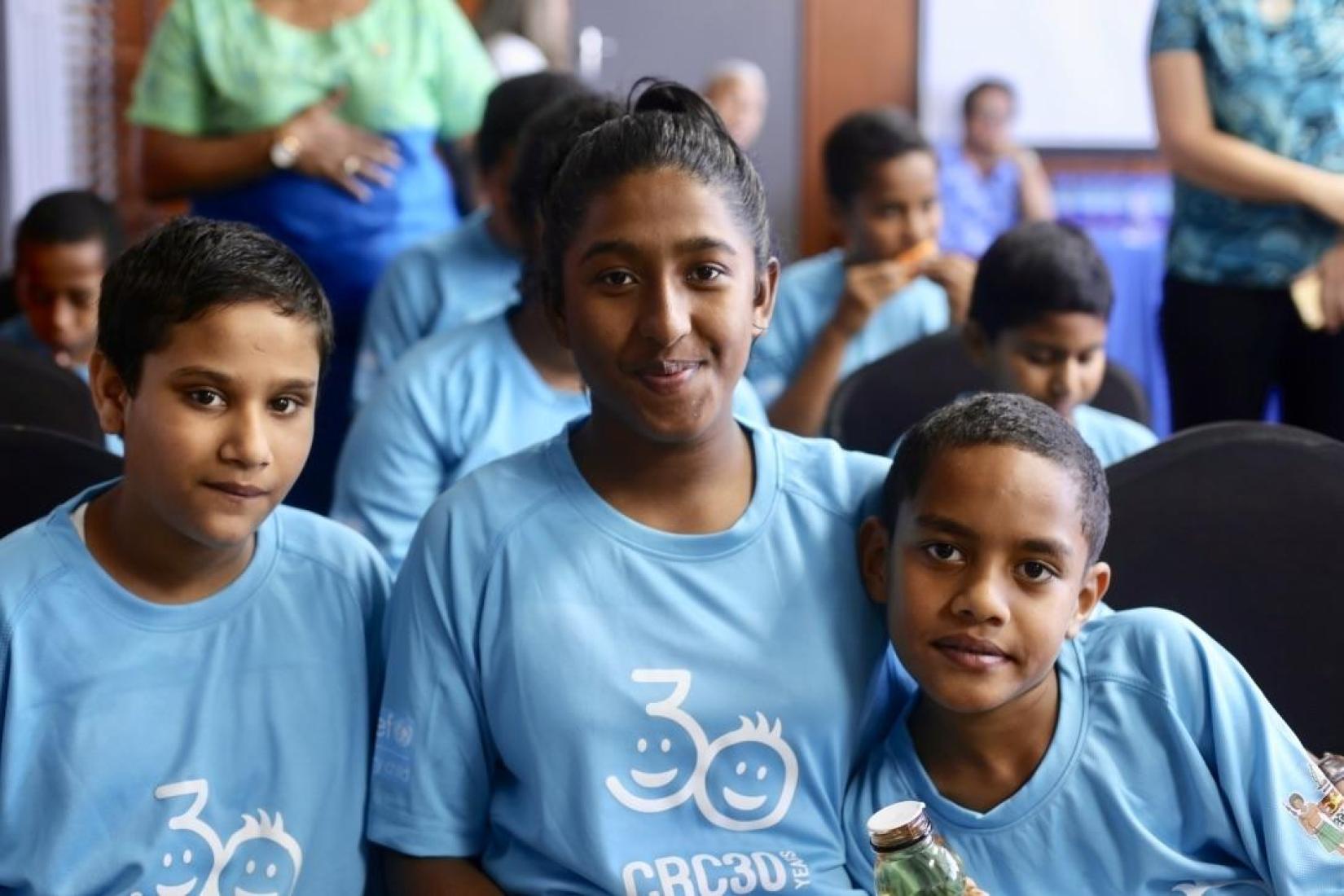Fiji
Fiji is a multi-ethnic nation of over 330 islands spread over an Exclusive Economic Zone of 1,290,000 sq. kms, with a population of about 936,000[1]. Settlements are concentrated along coastlines, and more than half of the population lives in towns and cities, with the majority of the population (almost 90%), residing on the two main islands of Viti Levu and Vanua Levu.

While Fiji has a high level of human development,[1] 24% of the population live at, or below, the national poverty line[2] and hardship and inequality are rising. High levels of internal and overseas migration and the transition from a subsistence to market-based economy are undermining traditional support systems. The economy is reliant on tourism, overseas remittances, transport, and sugar exports. Over 40% of employment is in the informal sector,[3] predominantly in agriculture, and there are high rates of youth unemployment.
Non-communicable diseases (NCDs) are a major health concern with 64% of adults and 34% of adolescents (5-19 years) reported as either overweight or obese.[4] The economic burden of NCDs due to mortality is predicted to increase in upcoming years, reaching almost 11% of the Gross Domestic Product (GDP) in 2040.[5]
Fiji remains one of the smallest contributors to global carbon emissions yet faces some of the most devastating consequences of extreme weather patterns, experiencing potential economic losses of up to one third of GDP during each cyclone season. Fiji is committed to strengthening its national climate resilience efforts, passing the Climate Change Act in 2021.
Despite ratifying the Convention on the Elimination of all Forms of Discrimination Against Women, most women are employed in Fiji’s informal sector and earn less than men. Women held 11% of the seats in national parliament.[6] Two out of three women report experiencing gender-based violence.
Current data indicates that Fiji will miss the targets of the 2030 Agenda for Sustainable Development to end poverty, reduce inequality and protect the environment. While there has been progress, many Sustainable Development Goals (SDGs) are significantly off track, with regression in SDG 3, good health and well-being, and SDG 14, life below water.
Development goals and objectives
The UN has been present in Fiji since 1984. The United Nations Pacific Sustainable Development Framework 2023-2027 outlines the UN’s development priorities and localized responses in 14 Pacific Island countries and territories, including Fiji, to advance the global 2030 Agenda for Sustainable Development. The UN Pacific Sustainable Development Framework complements the Fiji National Development Plan 2017-2036: “Transforming Fiji”; particularly in the areas of environment and natural resource management, gender, social and community development, health, education, governance, and human rights.
[1] World Bank. 2023. Population, total.
[1] United Nations Development Programme (UNDP). 2024. Human Development Report 2024.
[1] World Bank. 2019. Poverty headcount ratio at national poverty lines (% of population).
[1] ILO. 2024. Fiji: Country Factsheet.
[1] WHO GHO (2017); JME (2022)
[1] Hou, X., Anderson, I., & Burton-Mckenzie, E. J. (2022). The value of lost output and cost of illness of noncommunicable diseases in the Pacific. Health Policy OPEN, 3, 100073.
[1] World Bank. 2023. Proportion of seats held by women in national parliaments (%).

